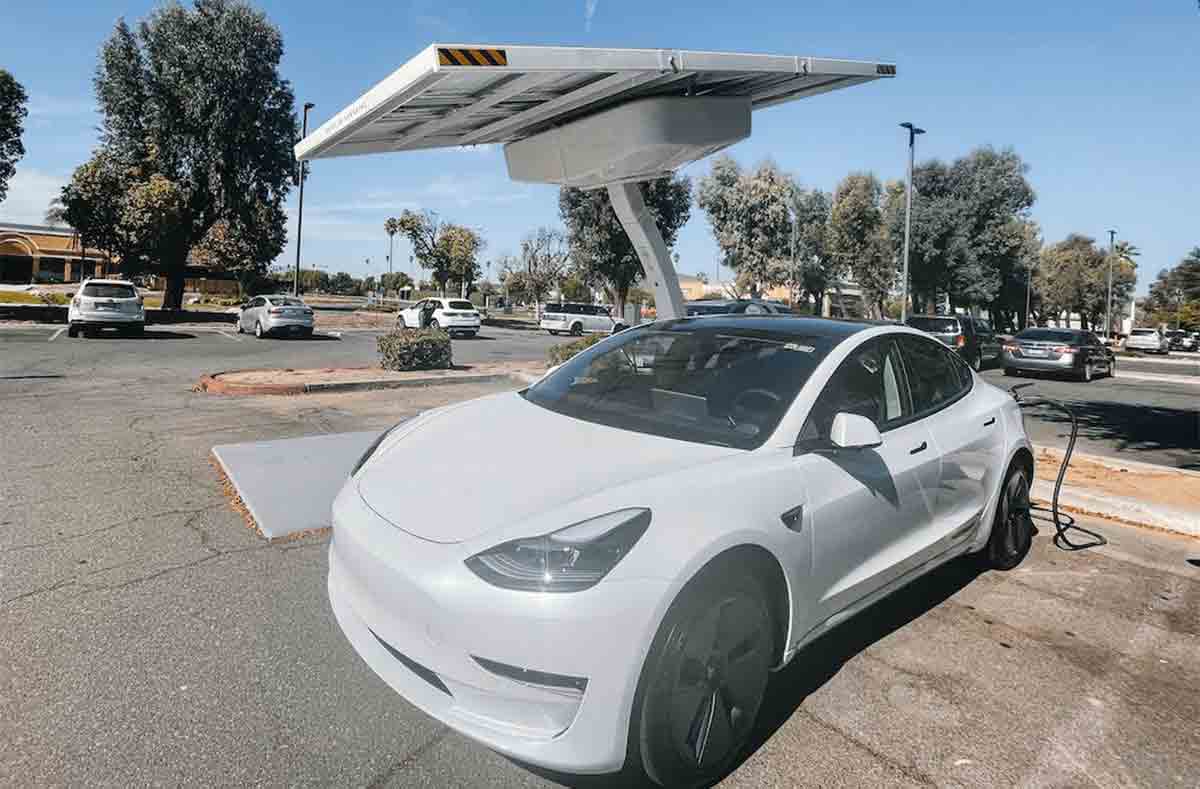When you see a sleek Tesla gracefully moving along the road, it’s impossible not to be captivated by its elegant and fashionable design. However, a burning question may arise: How does one embark on a road trip with an electric car like that? And what about convenient refueling? The solution lies in the growing network of EV charging stations, which have become increasingly crucial in tandem with the rise in popularity of electric vehicles. As a result, investors are recognizing the potential of this sector as a hot opportunity.
Understanding EV Charging Stations
An EV charging station functions as the equivalent of a gas station for electric vehicles. While most EV owners possess charging stations at their residences, there are currently tens of thousands of charging stations spread across the United States, whether in public areas or workplaces. Their primary purpose is to recharge the batteries of electric cars. While an EV charging station shares similarities with a gas station, the actual process is more akin to charging your phone. Just as you have a charger at home and another at your workplace, owning an EV might necessitate a residential EV charger while also having access to public charging stations or those located at your workplace.
Investment Potential of EV Charging Stations
Investing in EV charging stations can prove to be a smart financial choice considering the growing market for electric vehicles and the corresponding need for supportive infrastructure. The U.S. Bureau of Labor Statistics validates the increasing consumer demand for EVs, projecting that by 2023, electric vehicle sales may comprise as much as 52% of all car sales, a remarkable contrast to the mere 0.2% recorded in 2011.
Also Check: Dirty Ways to Make Money: Exploring Unethical Paths to Financial Gain
Aside from environmental considerations, the switch to EVs offers significant cost savings. Studies reveal that EVs can save drivers up to $12,000 over the vehicle’s lifespan, with fuel savings alone amounting to $4,700 or more during the initial seven years of ownership. Moreover, government policies contribute to additional savings for EV buyers. As an example, the Infrastructure Investment and Jobs Act offers EV buyers a tax credit of up to $7,500 until 2032. Additionally, it sets aside $7.5 billion to facilitate the development of a comprehensive national EV charging infrastructure.
With the combination of personal motivations, cost efficiency, and continuous enhancements in the affordability and battery life of EVs, it becomes evident why investors view EV charging stations as a wise investment opportunity.
Methods of Investing in EV Charging Stations
Business owners can make astute investments in EV charging stations, despite the initial installation costs. The Infrastructure Investment and Jobs Act has allocated $1.5 billion to support state-level initiatives in building and expanding EV charging networks. By exploring your state’s EV charging station plan, you can determine the available assistance programs. For instance, the Illinois Environmental Protection Agency offers up to an 80% rebate on eligible project costs.
Once you establish your charging station, you can charge EV drivers for the electricity they use to recharge their cars, employing a business model reminiscent of a gas station. However, investing in EV charging stations can yield additional revenue through less direct means. Imagine owning a restaurant with an EV charging station—when a road-tripping driver seeks a charging station and discovers your establishment nearby, they may decide to stop and recharge their car. As charging typically takes between 20 and 55 minutes, this provides an ideal opportunity for the driver to grab a meal, resulting in increased foot traffic. This strategy can apply to various retail establishments, including shops, bars, and convenience stores.
For those who are not business owners or prefer not to manage their own EV charging stations, alternative investment avenues exist. One option is to invest in companies involved in the creation and sale of charging equipment and technology, such as Tesla, Chargepoint, or Tritium, by purchasing their stocks. Investing in mutual funds or exchange-traded funds (ETFs) that focus on sectors relevant to the electric vehicle (EV) industry is an additional choice to think about. This enables people to match the growth and potential of the EV sector with their investment portfolio. This allows individuals to participate in the potential growth and success of the EV market through diversified investment vehicles.
Also Check: How to Make Passive Income on Amazon
Conclusion
As the popularity of EVs continues to surge, the demand for charging stations will inevitably rise in tandem. Business owners who invest in EV charging stations can not only secure an additional revenue stream but also enjoy the potential for increased foot traffic and a new customer base. Individual investors who recognize the sector’s promising future can participate by investing in stocks or ETFs associated with EVs and charging infrastructure.
